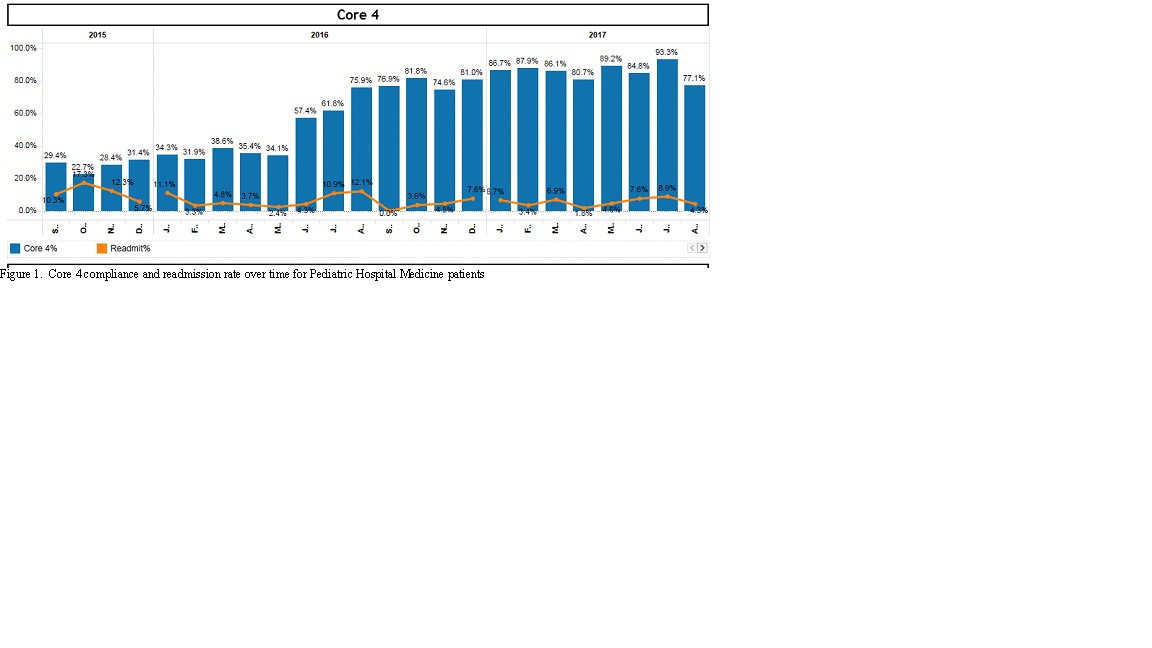Background: Inconsistent transitions of care from the inpatient to outpatient setting may lead to preventable readmissions. Critical processes completed at discharge shown to reduce readmissions at our institution include admission and discharge medication reconciliation, clinically appropriate follow-up scheduled prior to discharge, and timely completion of a discharge summary within 48 hours of discharge (the “Core 4” elements). We sought to increase compliance with the Core 4 elements, and hypothesized that our 30-day readmission rate would improve.
Methods: A multidisciplinary team including attending physicians, pediatric hospital medicine fellows, pediatric residents, nurses, and quality leaders, evaluated baseline Core 4 compliance data and found that scheduling a follow-up appointment prior to discharge and completing admission medication reconciliation presented opportunities for improvement. We identified barriers to completing these elements, and used PDSA methodology to address these barriers.
Results: Our primary outcome was the 30-day all-cause readmission rate during the year which the project was conducted compared with the readmission rate of the prior year, with process measured by compliance with all Core 4 elements. Longitudinally, over the one-year duration of the project, including time focused on both scheduling a follow-up appointment prior to discharge and admission medication reconciliation, the total Core 4 compliance rate increased from a baseline of ~30% (September 2015-August 2016) to a high of 93%, with monthly Core 4 compliance range 75-93% for September 2016-August 2017. The readmission rate for pediatric hospital medicine service patients decreased by 38% from 8.1% (n=886 patients) to 5% (n=758 patients) for the same time period, Figure 1.
Conclusions: Improved adherence to the Core 4 elements was associated with a decreased 30-day all-cause readmission rate on the pediatric hospital medicine service. Our multidisciplinary approach to this quality improvement initiative has created a culture that supports high reliability to the processes of making a follow-up appointment for patients prior to discharge, completing a discharge summary within 48 hours of discharge, and performing admission and discharge medication reconciliation, resulting in increased total Core 4 compliance over the last year. Pediatric trainees and nurses care for patients across services in our hospital, making it plausible that gains realized in this project can spread across all inpatient services, bringing a highly reliable safe transition to care throughout our institution. The measurement is patient-centered, an all-or-none approach, expecting that our patients require our attention to every detail. It is also possible that high reliability to the Core 4 care processes now represents improved attention to overall care transitions leading to a safer and more durable discharge.

